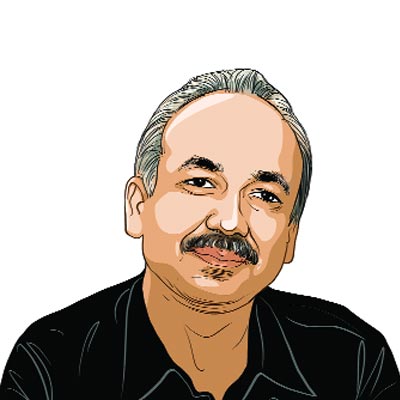Opinion From the palace to house arrest
As mainstream politicians stumble,Nepals former royal family gains sympathy
Madhav Kumar Nepal has found it much easier to rule the country as caretaker prime minister these past three months,than he did as full-time prime minister in the 11 months that preceded his caretaker stint. Dictated to by coalition partners and cornered by a powerful opposition,the only way for him to survive was to succumb to all kinds of pressure. In fact,even his sudden resignation,tendered on July 1,two days after he had called the budget session,was under pressure from his own party,the Communist Party of Nepal-Unified Marxist Leninist (CPN-UML) bosses,chairman Jhalanath Khanal and speaker Subhash Nembang.
But Madhav Nepal seems to have interpreted parliament’s failure to elect his successor as a sign of his own indispensability in Nepali politics. The parliament,which also functions as the constituent assembly,suffers from a lack of credibility: it has been unable to deliver the new constitution.
 The caretaker prime minister seems to be taking maximum advantage of the mess that he has presided over. He is now free to skip parliamentary accountability by simply saying: “What can I do if parliament fails to elect a leader?” On September 21,he instructed the home secretary,in the presence of a delegation from the Federation of Nepalese Chamber of Commerce and Industry to have the former king,Gyanendra,put under “house detention” and to not let him visit the temple of Kumari on the eve of the Indrajatra festival.
The caretaker prime minister seems to be taking maximum advantage of the mess that he has presided over. He is now free to skip parliamentary accountability by simply saying: “What can I do if parliament fails to elect a leader?” On September 21,he instructed the home secretary,in the presence of a delegation from the Federation of Nepalese Chamber of Commerce and Industry to have the former king,Gyanendra,put under “house detention” and to not let him visit the temple of Kumari on the eve of the Indrajatra festival.
A posse of armed police forces rushed to Nirmal Niwas,Gyanendra’s private residence,and kept a round-the-clock vigil for the next 48 hours. On September 23,Madhav Nepal revealed that his express order to have the former king put under detention was based on information that suggested Gyanendra’s presence during the occasion would have overshadowed the visit of President Rambaran Yadav,the head of state of a secular Nepal,to the same temple the next day.
Madhav Nepal reluctantly conceded the former king was now getting more attention from the people than the president. A king’s visit to the Kumari temple on Indrajatra day is an almost four-century-old tradition in Nepal. It was on this day 241 years ago that Prithvinarayan Shah,the great warrior king from Gorkha and the 10th forefather of Gyanendra conquered the Kathmandu valley and many other princely states,and converted them into a unified Nepal.
Gyanendra might have lost the throne and his right to represent the state on the occasion,but Madhav Nepal’s decision to not allow him a visit even as a commoner has only earned the deposed king tremendous sympathy,if not political support. Gyanendra’s recent visits to Janakpur and Chatra in eastern Nepal,without doubt,overshadowed the president’s visits that followed in close succession. But curtailing the former king’s right to free movement and to practice his religion has backfired on the prime minister.
Perhaps Madhav Nepal has to prove a point and his action against the former king does send out a two-pronged message. The Unified Communist Party of Nepal-Maoists (UCPN-M) circulated posters showing Madhav Nepal bowing before and offering silver coins at the feet of Gyanendra — a formal way to greet the king soon after Gyanendra became one in June 2001. In October 2002,Madhav Nepal was the only leader from the major political parties to petition King Gyanendra saying that he deserved enough trust from “His Majesty” to be appointed prime minister,a plea that Gyanendra did not accept. Then,he put Gyanendra under house arrest when UCPN-M chief Prachanda spoke in favour of the revival of a ‘cultural monarchy’. He seems desperate to erase his past association with the king despite being the head of a communist party.
Gyanendra has,of course,gained a lot out of the political mess that the political parties have created. His son,Paras,once known for his notorious behaviour in public,has mustered enough courage to apologise to the people for all the crimes he committed. He now says that his concern is the well-being of the people,and a secure future for the nation. Madhav Nepal seems to have responded in panic. And to his dismay,President Yadav has landed in a major controversy after a national newspaper broke a story about his favouring one faction of the Nepali Congress,the party that he belonged to before he was elected head of state,during the recently-held general convention of the party. Instead of building a credible political system and strong institutions,the current leadership is acting brazenly as an extra-constitutional entity,something that the king himself tried,and was adequately punished. An uncertain future lies ahead for those who refuse to learn from history.
yubaraj.ghimire@expressindia.com





